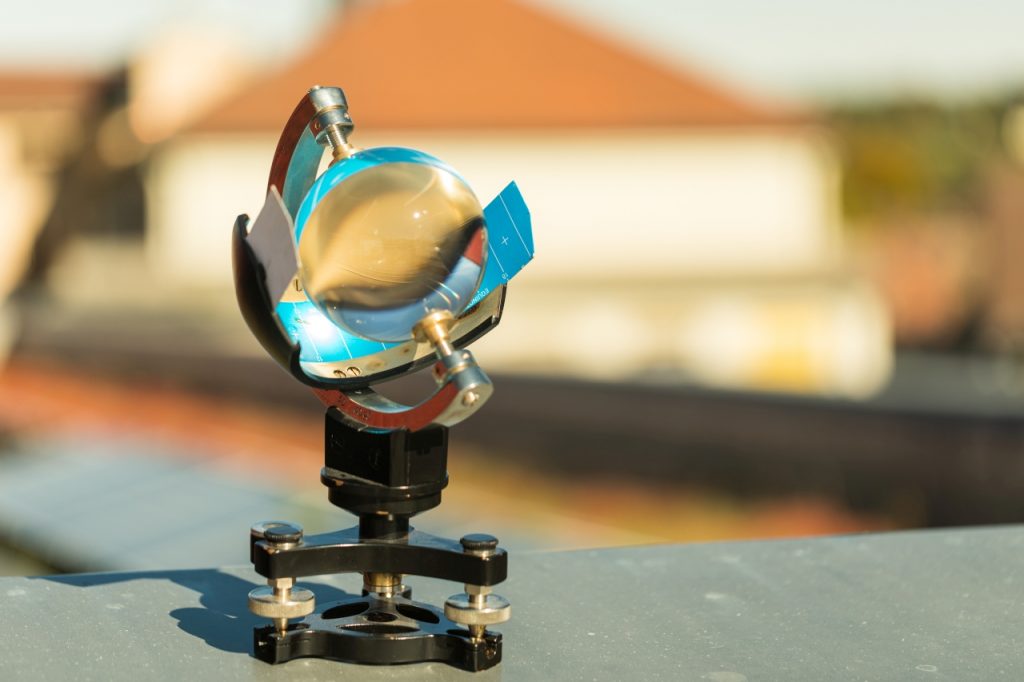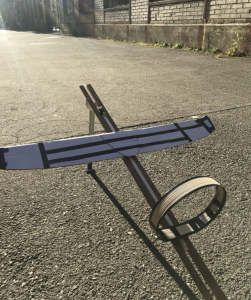Navigation menu
- Education
- Emissions & Air Quality
- Infrastructure & Services
- Meteorology & Climate
- News
- Physical Chemistry
- Projects
By: Saskia Drossart van Dusseldorp (Saskia.drossaartvandusseldorp@zhaw.ch)

Driven by our intrinsic motivation to carry our passion into the world, we are always eager to explore new ways of reaching out. By using a multitude of channels and platforms, we manage to address a diverse audience – at least in theory. In practice however, our audience tends to be semi-divers and consists mostly of well-educated adults. This includes scientists, technicians, our students at ZHAW and other interested people (like you, dear reader). While this is convenient in many ways and allows us to discuss complex topics, it does not do justice to the potential that our fields of expertise harbor. Aviation, in particular, exerts fascination on people of all ages. Who has not, as a child, built countless planes out of paper, sticks, or whatever material was at hand? Or has not wondered at least once why some aircraft leave trails in the sky while others don’t? Aviation is omnipresent, in our sky, in our media, in our culture and yet, cannot seem to lose its allure. Or do you know anyone who is not the least bit excited before boarding a plane?
This almost unique combination of ordinariness and deep-rooted fascination makes it an enticing getaway to the world of science and technology. On top of that, aviation illustrates one of the big challenges of our times in such a prominent way, that even children nowadays know that, while air travel might be exciting, it is – from the environmental point of view – also problematic. It thus serves as an excellent example to discuss the shift in awareness towards sustainable consumption that science and technology are going through and its complex ramifications, like the question of individual and political responsibility, even at a young age.
So you see – whether it be physics, history, science or politics – there is a lot to be learned from aviation, not only for well-educated adults. To exploit this potential, our team joined the MINT-Netzwerk, which is dedicated to improving the quality and versatility of STEM (Science, Technology, Engineering and Mathematics) learning in compulsory education. The overarching goal of the network is to inspire children to follow a career path in science or engineering and thereby foster diversity in the field and counteract the increasing shortage of skilled professionals. As a positive side effect, the compulsory scientific canon is broadened and modernized.
To do our part in this endeavor, we teamed up with our colleagues from the ZHAW Institute for Natural Resource Science and the Pädagogische Hochschule Thurgau and launched the Project “Der Traum vom Fliegen“. With our joined forces and expertise, we aim to support teachers by designing application-oriented learning material for primary and secondary school, on the topic of aviation. To create the best possible experience for students as well as for teachers, we design the material with the following principles in mind:
- Learning must be fun
While fun is a widely accepted part of successful education in general, it also vital for counteracting the underrepresentation of women in STEM professions. STEM topics in school are traditionally associated with hard work, complicated formulae, and headache, which makes further persuasion rather unattractive. On the other hand, there are a multitude of toys and games designed around science and technology that encourage children to develop and cultivate their interest in STEM topics in a playful way. However, those toys are – to a great extent – made and marketed for boys only, while girls are conditioned to be more interested in “feminine” topics. Conclusively, to give girls a chance to make positive experiences with STEM, those experiences have to be provided by the school – because who would want to pursue a career that offers nothing but a headache?

- The content must be correct
When breaking down complex topics to make them more user-friendly for children, one is tempted to oversimplify to an extent where children learn wrong concepts. For example, that the sun rises in the morning and sets in the evening, when it is actually the earth that is rotating. Such false concepts are hard to unlearn later and must be avoided.
- Education must be tangible
There is plenty of evidence that hands-on experience is superior to textbook-learning. It’s not only more fun for everyone involved, but the gained knowledge is also more sustainable. We accordingly strive to design the material as interactive as possible with little textbook and a lot of exercises and experiments.

- Education must be sustainable
Sustainability, in this context, means education is not just about increasing the children’s knowledge about a certain topic. It means equipping the students with skills that empower them to explore any topic that they might be interested in. Sustainable education is creating a set of tools like curiosity, critical questions, scientific methodology, systemic thinking, and media competence.

So, you see, our goals are rather ambitious, and we are excited about the things to come. If you are too, keep visiting this blog every once in a while, for some updates and if you are a teacher, or know a teacher – don’t hesitate to contact us to find out more. We are always happy to be in touch.
Contact: Saskia.drossaartvandusseldorp@zhaw.ch